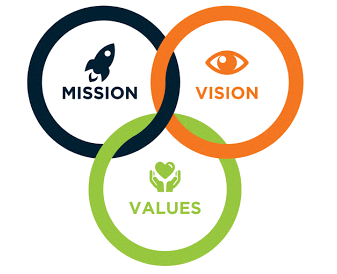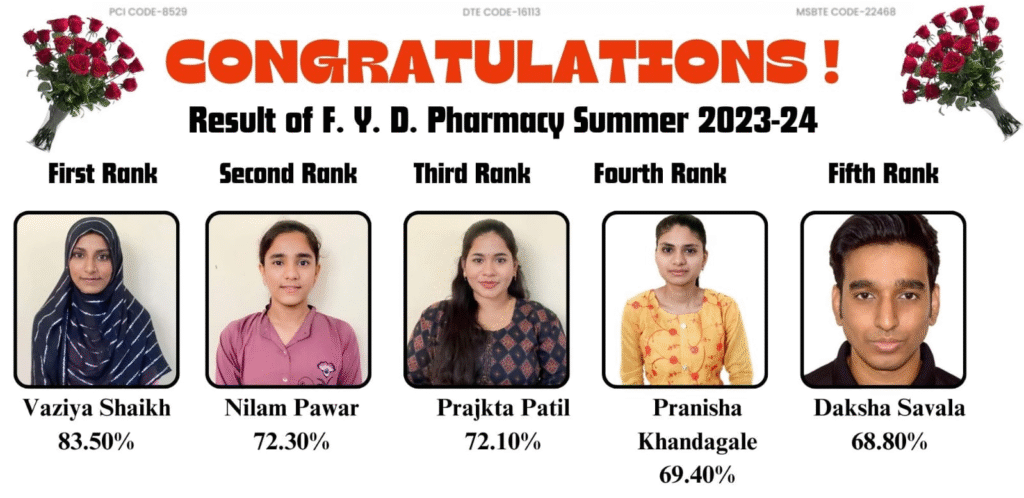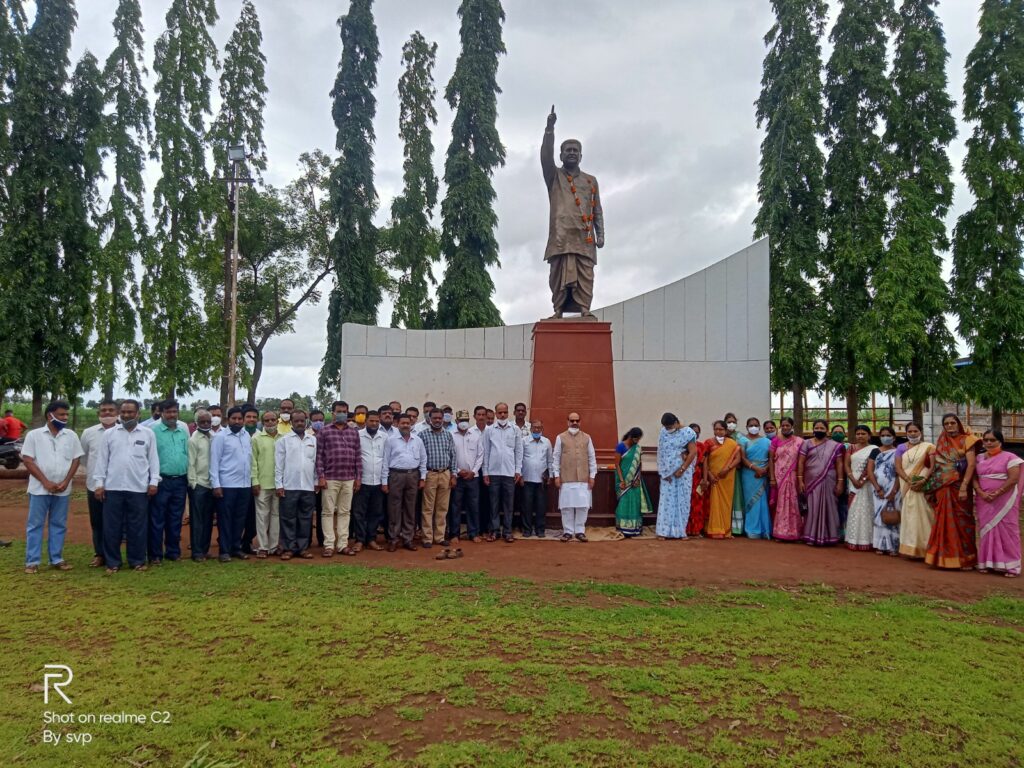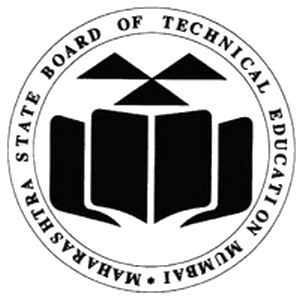



D.Pharm- Intake: 60, Duration: 2 Years
Eligibility
Maharashtra State Candidature Candidate
- The Candidate should be an Indian national.
- pass in 10+2 examination (science academic stream) with Physics, Chemistry and Biology or Mathematics.
OR
Any other qualification approved by the Pharmacy Council of India as equivalent to the above examination
Note: Other than Maharashtra StateCandidates shall be eligible for Institution quota only.
B.Pharm - Intake: 60, Duration: 4 Years
Eligibility
Maharashtra State Candidature Candidate
- The Candidate should be an Indian national.
- pass in 10+2 examination (science academic stream) with Physics, Chemistry and Biology or Mathematics.
- CET
OR
Any other qualification approved by the Pharmacy Council of India as equivalent to the above examination
Note: Other than Maharashtra StateCandidates shall be eligible for Institution quota only.
Our Prestigious Affiliations & Accreditations
Some Facts about NNCP
Sailent Features
- Startup echo system for clinical research through institution innovation council.
- State of art Modular enriched laboratory setup with aseptic space
- Highly efficient, well-qualified and interactive faculties.
- Spacious Library with the latest books and journals (E-Books and E-Journal Facilities).
- Museum has a collection of plenty of plant drugs with herbarium and a well-maintained display of various health care products.
- MoU with reputed MNCs.
- 100 % placement assistant.
- Exclusive coaching for communication skills and personality development
- Hostel Facility.
- Free WIFI Campus.
- Transportation facilities include College Buses/ST Buses/KMT Buses

OUR VISION
To develop optimistic, dedicated, endowed and ethical pharmacy professionals to accomplish healthcare needs of the society.
OUR MISSION
To impart high quality technical education and training that facilitate students to acquire in-depth knowledge, skill and expertise in the field of healthcare profession to serve society at large.
Our Committments
- Quality Education
- Development of students to be industry ready.
- Create responsible professionals under the Healthcare service
- Industrial Training and Placement cell
Padma Bhushan Awarded Founder


Padmabhushan Krantiveer
Dr. Nagnathanna Nikawadi
Creative Leadership & Administration
Highly Experienced and Accomplished Teaching Faculty

Principal
Prof. Dr. Soujanya Chilka

Professor
Mrs. Pradnya Sanjay Marale

Assistant Professor
Mr. Ramchandra Jagannath Salgar

Assistant Professor
Miss. Ashphana Ayubkhan Varushe
Our Students Consistent Excellence in Pharmacy Academics

High-Tech, Modern and well equipped Labs
Events Photo Gallery
AvailableFacilities
- ✓Reading hall facility
- ✓OPAC (On Line Public Access Catalog) Cloud Based System
- ✓Digital Library with 27 PCs is available for all Students and Staff
- ✓Open Access to stack area is offered to students and staff
- ✓Students can take 2 books for 15 days on Borrow Cards
- ✓The faculty can avail as many as books in a semester.
- ✓Book bank facility as well as e-journal, e-book facility is there for all users.
- ✓Library is accessible after college hours during the examination period.
- ✓The MSBTE syllabus and MSBTE question papers are available in the library.
ICT Facilities
| Item Name | Required | Available |
| Computer Room | 01 (Area 75 Sq mts) | 77 (in Sq mts) |
| Computer (Latest Configuration) | 1 system for every 10 students | 20 |
| Printers | 1 printer for every 10 computers | 2 |
| Multi Media Projector | 1 | 4 |
| Generator (5KVA) | 1 | 1 |
| Photocopier | 1 | 1 |
| Scanner | 1 | 2 |
| LCD Projector | 2 | 4 |
| Internet facilities | 4MBPS | 100 MBPS |
Scope of Pharmacy Education
Pharmacy education offers a wide range of career opportunities and a promising scope in the healthcare industry. Here are some key aspects of the scope of pharmacy education:
Pharmacist: A bachelor’s or master’s degree in pharmacy allows individuals to become licensed pharmacists. Pharmacists play a crucial role in healthcare by ensuring the safe and effective use of medications. They work in various settings, including community pharmacies, hospitals, clinics, and pharmaceutical industries. Pharmacists are responsible for dispensing medications, providing drug information to patients and healthcare professionals, monitoring medication therapy, and offering patient counseling.
Clinical Pharmacy: Pharmacists with advanced training, such as a Doctor of Pharmacy (Pharm.D.) degree, can pursue careers in clinical pharmacy. They work closely with healthcare teams to optimize medication therapy, provide drug therapy recommendations, monitor patient outcomes, and participate in patient care rounds. Clinical pharmacists often specialize in areas like critical care, infectious diseases, oncology, or ambulatory care.
Pharmaceutical Industry: Pharmacy education opens up opportunities in the pharmaceutical industry. Pharmacists can work in research and development, drug manufacturing, quality assurance, regulatory affairs, pharmacovigilance, medical affairs, and sales and marketing. They contribute to drug discovery, formulation, testing, production, safety evaluation, and ensuring compliance with regulations.
Academic and Research Careers: Pharmacy education provides a foundation for those interested in pursuing academic and research careers. Graduates can pursue teaching positions in pharmacy schools or universities, contribute to pharmaceutical research, and mentor future pharmacists. They can engage in drug discovery, clinical trials, pharmacology research, and pharmacy practice research.
Hospital Pharmacy Administration: Pharmacy education offers opportunities in hospital pharmacy administration. Pharmacists can take up managerial roles where they oversee the operations of hospital pharmacies, manage drug inventory, develop and implement medication policies, and ensure regulatory compliance.
Government and Regulatory Agencies: Pharmacy graduates can work in government health departments and regulatory agencies. They may be involved in drug safety evaluation, formulating drug policies and regulations, monitoring pharmaceutical practices, and ensuring compliance with healthcare standards.
Entrepreneurship: Pharmacy education equips individuals with knowledge about medications, healthcare systems, and business aspects of the pharmaceutical industry. This knowledge can be leveraged to start independent pharmacies, consulting firms, or other healthcare-related businesses.
Specialized Roles: Pharmacy education provides opportunities for specialization in areas such as clinical pharmacokinetics, geriatric pharmacy, pediatric pharmacy, psychiatric pharmacy, and oncology pharmacy. Specialization can lead to advanced practice and increased demand in these specialized areas.
The scope of pharmacy education is continually evolving with advancements in healthcare and the pharmaceutical industry. Pharmacists have the potential to contribute to patient care, research, drug development, and public health initiatives. It’s important for pharmacy professionals to stay updated with emerging trends, technologies, and regulatory changes to maximize their career prospects and make a positive impact on healthcare.
Top Recruiters in Pharmacy






